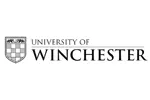About Regional and Local History and Archaeology, MA - at University of Winchester
Regional and Local History and Archaeology at Winchester aims to provide students with a detailed working knowledge of the ways in which the local and regional past is accessible to analysis.
Students graduate with an award in either both Archaeology and History or in Regional and Local Archaeology or in Regional and Local History – depending on the choice of modules and previous experience in the relevant subject or related discipline. Previous knowledge of either discipline, or a related subject, is expected, but there is no need for applicants to have a background in both history and archaeology.
Entry requirements: Normally a first or second class Honours degree in a related subject or professional experience in the area of study
If English is not your first language: IELTS 6.5 (including 6.5 in academic writing) or a TOEFL score of 575 (paper-based) or 232 (computer-based) or equivalent
Application process: UKPASS (full-time applicants only) or Direct Entry Application Form (part-time applicants only)
Programme ContentThe programme explores the development of the study of communities’ histories by examining theories and models used by archaeologists and/or historians. This process also uses case studies to apply a number of approaches to selected themes and areas. The geographical focus is predominantly on the Wessex region and the South of England in general, but many examples and case studies are drawn from other areas as appropriate.
Students commence on the core module, Approaches to the Local and Regional Past, which addresses key issues on what historians and archaeologists mean when they refer to regions and localities, and how the study of the two disciplines has developed from the antiquarian to the professional practitioner. The extent to which antiquarian works can be of use, and how local studies relate to national histories are also covered. Thematic case studies are used to illustrate the theories advanced. There are also opportunities for a fieldtrip to a local archaeological site (for example, Avebury, Danebury or Stonehenge) and a visit to the Hampshire Record Office.
Students choose three optional studies from the bank of Applied and Special Studies available at the time. Applied Studies are practically-based and are only available to students studying archaeology as all or part of their programme. Special Studies are largely classroom-based; some are history modules and others are archaeology. Full-time students will complete one optional study in their first semester and two in their second whilst part-time students will undertake one special study per semester of their programme, starting in the second semester of their first year. Fieldtrips also take place on some of the history and archaeology options, to places such as Wells Cathedral.
The centrepiece of the MA is the three-module, 20,000 word dissertation. As a preparation for the dissertation students will work on a research methods module and they will do an Independent Study presentation.
Most of the modules run in the evenings to accommodate students with careers and the Research Methodology module runs on five Saturdays in Semester 1.
ModulesModules include:Approaches to the Local and Regional Past explores different ways in which historians and archaeologists have conceptualised and approached the past.
Research Methodology provides conceptual and practical guidance for writing the dissertation.
Independent Study Presentation provides an opportunity for students to give an oral presentation on their dissertation progress.
Independent Study modules lead to the completion of the dissertation.
Applied Studies (archaeology only) include:
The Archaeology of Space and Place
Church Archaeology
Special Studies in Archaeology include:
The Lower Palaeolithic of Britain and Western Europe
Later Prehistoric Wessex
The Celts
Central Southern England in the Roman Period
Roman Imperial Italy: Regional Perspectives
Italy in the First Millennium BC: Regions and Cultures
Winchester and Southampton, 1000-1600
Mediterranean Landscape Archaeology
Special Studies in History include:
The History of Anglo-Saxon Wessex
Normandy, 911-1204
Religion and Society: The Secular Church of Late Medieval Wessex
The Rulers of Late Medieval English Provinces
Late Medieval Demography
People, Allegiance and Ideas in Southern England, 1640-1680
Hampshire and Sussex, c.1660-c.1830
English Religion, 1660-1830
Poverty in the South of England, 1770-1870
Population and Society in England, c.1800-1900
Sport and Leisure in Victorian Britain
AssessmentEach module is assessed by written assignments of 4,000 words, except the core module which consists of two 2,000 word essays.
DissertationThe dissertation is a substantial piece of independent research and full tutorial support is provided. Students write 20,000 words on a subject of their choice from within the realms of history or archaeology.
CareersGraduates have gone on to work within the history and archaeology industries, in museums or archives around the region, with organisations such as Wessex Archaeology or to pursue their own professions armed with a higher degree. We also have a number of former students who took the degree for the love of the subjects. The programme does, however, also provide a firm foundation for postgraduate research or further training and a substantial number of graduates have gone on to study for MPhils and PhDs, both in Winchester and at other academic institutions.

